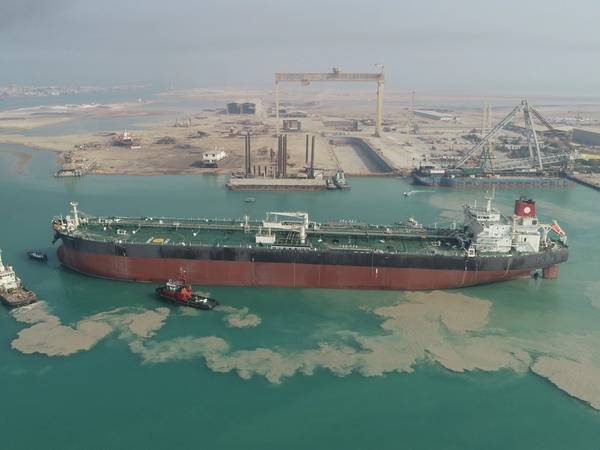The United States on Tuesday introduced new sanctions against 35 companies and ships over their alleged involvement in Iran's oil sales which have more than tripled between 2020 and 2023 during the Biden administration.
The entities and vessels sanctioned on Tuesday "play a critical role in transporting illicit Iranian petroleum to foreign markets," according to a statement by the US Department of Treasury.
The statement said petroleum revenues provide Tehran with the resources to fund its nuclear program, develop advanced drones and missiles, and provide ongoing financial and material support for the activities of its regional proxies.
The new sanctions are being imposed a few weeks before the inauguration of President-elect Donald Trump. The Biden administration has long been criticized by Republicans and Iranian opposition groups for lack enforcement of the oil sanctions in place against the Islamic Republic.
Senator Jim Risch, a Ranking Member of the US Senate Foreign Relations Committee, said the Biden admin is "late on nearly every requirement under the SHIP Act", which targets Tehran’s oil exports in defiance of US sanctions.
The previous Trump administration imposed his so-called maximum pressure against Tehran, reducing its oil exports to 200,000 bpd, according to assessments based on tanker tracking. However, Iran's oil exports rose to over 2.2 million barrels a day in August 2023, mostly to China and through the so-called "shadow fleet".
"Iran relies upon a sprawling network of tankers and ship management firms in multiple jurisdictions to transport its petroleum to overseas customers — using tactics such as false documentation, manipulation of vessel tracking systems, and constant changes to the names and flags of vessels," according to the US Treasury.
“The United States remains committed to disrupting the shadow fleet of vessels and operators that facilitate these illicit activities, using the full range of our tools and authorities," said Acting Under Secretary for Terrorism and Financial Intelligence Bradley T. Smith.
Last month, Iran's oil minister said the country has made plans to sustain its oil production and export and is ready for possible oil restrictions from a Trump administration in the US.
Iran gets some sanctions relief
Hours after the new oil sanctions, the US State Department announced that the Biden administration had renewed a 120-day waiver on Nov. 7 allowing Iraq to pay Iran for electricity.
"Since 2018 ... the State Department has permitted Iraq to purchase Iranian electricity, while Iraq continues to develop its own domestic generation capacity," State Department deputy spokesman Vedant Patel told reporters.
It is not immediately clear whether the new oil sanctions were related to the waivers and were possibly aimed at preventing backlash over the sanctions relief.
